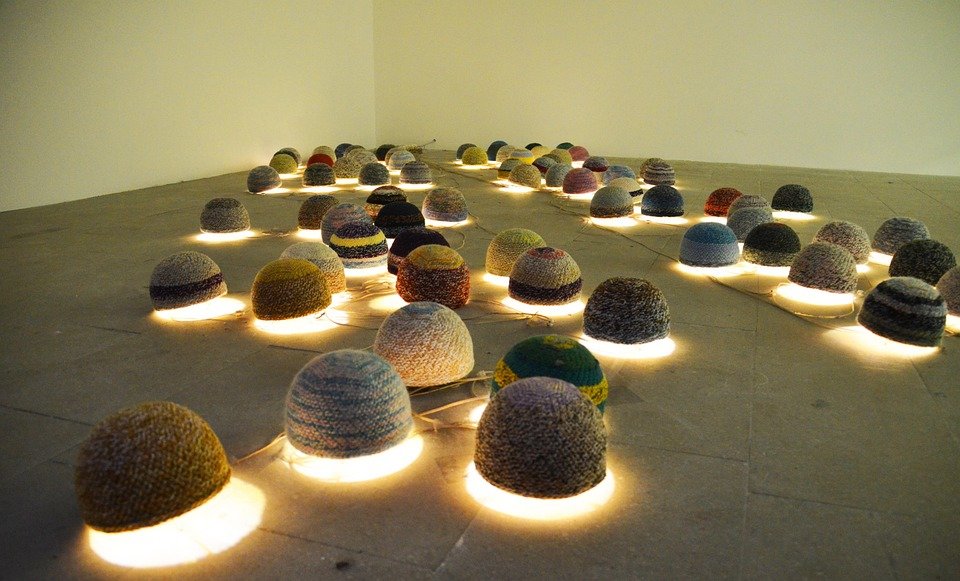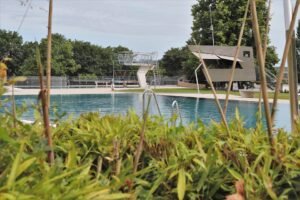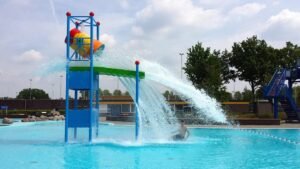Navigating Local Regulations: Pool Installation Permits and Codes Explained
Introduction
In the vibrant city of Dubai, where luxury living meets modern architecture, having a private pool has become a sought-after feature for homeowners and property investors alike. However, before diving headfirst into pool installation, understanding local regulations – particularly permits and codes – is crucial. Navigating these regulations can seem daunting, but with the right information, you can complete your pool project smoothly and legally.
In this article, we will delve into the intricacies of pool installation permits and codes in Dubai. From understanding the importance of proper permits to practical tips on how to ensure compliance with local regulations, this guide will equip you with the knowledge you need for a hassle-free pool installation experience.
Understanding Pool Installation Permits and Codes
Before you start planning your dream pool, it’s essential to grasp what pool installation permits and codes entail within the context of Dubai’s regulatory framework.
What are Pool Installation Permits?
Pool installation permits are official approvals granted by local authorities that allow you to construct or install a swimming pool on your property. These permits ensure that your project adheres to safety, health, and design standards outlined by the government.
Why are Permits Necessary?
- Safety: Ensures the safety of pool users and prevents accidents.
- Compliance: Adheres to local building codes and safety regulations.
- Insurance: Proper permits may be required for insurance claims or property transactions.
- Legal Requirement: Avoid fines or legal repercussions for non-compliance.
Key Local Regulations Governing Pool Installation in Dubai
The Dubai Municipality oversees building regulations, including those pertaining to pool installation. Familiarity with the following common regulations can significantly ease your project’s approval process:
1. Structural Codes
- Pools must be built to withstand local environmental conditions (e.g., sandstorms, high temperatures).
- Ensure the pool’s structural integrity with proper materials and construction techniques.
2. Safety Codes
- Fencing: Pools must be enclosed with a fence that meets specific height and gate standards.
- Drainage and Electrical Safety: Adequate drainage systems must be in place to prevent flooding, and electrical fittings must comply with safety standards.
3. Health Regulations
- Water Treatment: Pools must have a water filtration system to ensure cleanliness.
- Chemical Use: Proper handling and storage of pool chemicals are necessary to mitigate health risks.
4. Land Use Regulations
- Zoning Laws: Some areas may have restrictions on the type and size of pools based on residential zoning.
- Setback Requirements: Pools often need to be a certain distance from property lines or public pathways.
The Pool Installation Permit Process
The permit application process can vary based on the specifics of your project and location. Here are the general steps to obtaining your pool installation permit in Dubai:
Step 1: Research Local Regulations
Familiarize yourself with the specific regulations and requirements in your area (e.g., Jumeirah, Arabian Ranches, Palm Jumeirah).
Step 2: Prepare Your Plans
Work with a professional pool designer or contractor who understands local codes. Your plans should include:
- Detailed drawings of the pool.
- Plans for safety fencing and drainage systems.
- Materials and equipment specifications.
Step 3: Submit Your Application
Submit your plans and application to the Dubai Municipality or your local municipality office. Ensure your application includes:
- A completed permit application form.
- Proof of ownership or a No Objection Certificate (NOC) if applicable.
- Payment for the applicable fees.
Step 4: Await Approval
The waiting time can vary based on the complexity of your project and the backlog at the municipality. Follow up if you don’t receive communication within a reasonable timeframe.
Step 5: Commence Construction
Once your permit is granted, you can begin construction. Be sure to schedule inspections at various project stages to ensure compliance with safety and building codes.
Tips for a Smooth Permit Process
To streamline the permit process and avoid common pitfalls, consider these expert tips:
- Hire a Reputable Contractor: Work with a contractor experienced in Dubai’s local regulations and codes (like Dream Floor Landscaping Services).
- Complete Documentation: Ensure all documentation is accurate and complete before submission to prevent delays.
- Communicate with Authorities: Maintain open lines of communication with the local municipality to address any questions or concerns quickly.
- Plan for Inspections: Schedule inspections as required during the construction process to identify issues early and avoid costly fixes later.
Conclusion
Installing a pool in Dubai can be a rewarding experience, but it requires diligent attention to local regulations and permits. Understanding the importance of compliance and following the correct procedures will pave the way for a successful project that meets safety and legal standards.
Whether you’re looking to enhance your property value, provide a recreational space for your family, or create a stunning visual feature in your garden, navigating the complexities of pool installation permits and codes is a critical step.
If you have further questions or need professional assistance in ensuring your pool installation adheres to Dubai’s local regulations, don’t hesitate to contact Dream Floor Landscaping Services at +971563787002. We specialize in pool installations across Dubai and Emirates Hills, including areas like the Meadows, Jumeirah Islands, and Arabian Ranches.
Embark on your dream pool installation today, and enjoy the luxury of a private oasis right in your backyard!





